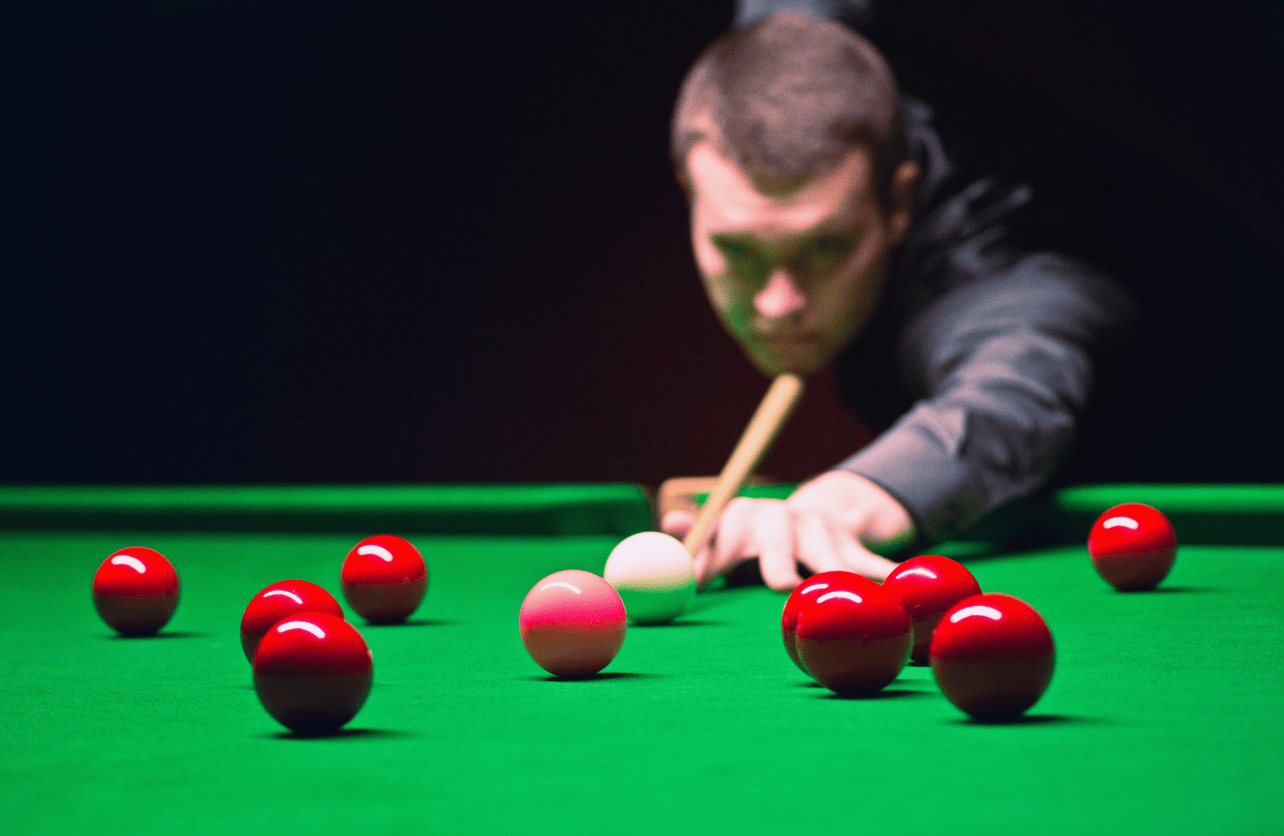The Difference Between Snooker and Pool

Snooker and pool are two of the most popular cue sports in the world, but they differ significantly in gameplay, equipment, and overall experience. While both involve using a cue stick to pocket balls on a table, the nuances of each game set them apart in terms of strategy, skill level, and appeal. Whether you’re a casual player or an aspiring professional, understanding these differences can enhance your appreciation for both games.
Table Size and Layout
One of the most noticeable differences between snooker and pool is the size of the table. Snooker is played on a much larger table, typically measuring 12 feet by 6 feet, with smaller pockets that have rounded edges. These smaller pockets require exceptional precision, making snooker a challenging game even for experienced players.
In contrast, pool tables are smaller, with standard sizes ranging from 7 feet by 3.5 feet for bar tables to 9 feet by 4.5 feet for professional play. The pockets on pool tables are larger with straighter edges, which makes pocketing balls easier compared to snooker. This difference in table size and pocket design heavily influences the gameplay and strategies used in each sport.
Number of Balls and Their Appearance
The ball sets used in snooker and pool also differ significantly. Snooker is played with 22 balls, including 15 red balls worth 1 point each, six colored balls with points ranging from 2 to 7, and a white cue ball. These balls are smaller and lighter than those used in pool, adding to the difficulty of snooker.
Pool, on the other hand, uses 16 balls: seven solid-colored balls (numbered 1 to 7), seven striped balls (numbered 9 to 15), a black 8-ball, and a white cue ball. Pool balls are larger and heavier, making them easier to control, especially for beginners.
Gameplay and Objectives
The objectives and rules of snooker and pool are fundamentally different. In snooker, players aim to score points by pocketing balls in a specific sequence. A red ball must be pocketed first, followed by a colored ball. Once all red balls are cleared, the colored balls are pocketed in order of their point value, from yellow (2 points) to black (7 points). The game emphasizes strategy and precision, requiring players to plan several shots ahead.
Pool, by contrast, has multiple variations, each with its own objective. The two most popular forms are eight-ball and nine-ball. In eight-ball, players must pocket either solids or stripes, followed by the 8-ball to win the game. Nine-ball involves pocketing balls in numerical order, with the game ending when the 9-ball is successfully sunk. Pool’s simpler objectives and smaller table make it faster-paced and more accessible.
Cue Sticks and Equipment
The cues used in snooker and pool are tailored to the demands of each game. Snooker cues are thinner and lighter and have a smaller tip, designed for precise control of the smaller, lighter balls. In contrast, pool cues are thicker and heavier, with a larger tip that accommodates the weight and size of pool balls. These differences in cue design further highlight the unique skills required for each sport.
Scoring and Game Duration
Scoring in snooker is based on the point value of the balls pocketed. Players accumulate points throughout their turn, and fouls can result in points being awarded to the opponent. Matches are often played over multiple frames, with professional games lasting hours or even days.
Pool typically doesn’t use a point system for scoring. Instead, the winner is determined by who successfully completes the game’s objective, such as pocketing the 8-ball or 9-ball. Pool games are generally quicker, often lasting just a few minutes, which contributes to its popularity in casual settings.
Strategy and Skill Level
Snooker is a highly strategic game that demands exceptional precision and planning. The larger table, smaller balls, and stricter rules require players to think several moves ahead, making it a mentally engaging sport. Pool, while also requiring strategy, is more forgiving and accessible, especially for beginners. The smaller table and larger pockets make it easier to pocket balls, allowing players to focus on improving their skills without being overwhelmed by the game’s complexity.
Cultural and Global Appeal
Snooker has a strong following in countries like the UK, China, and India, where it’s often regarded as a professional and formal sport. Its technical challenges and strategic depth attract enthusiasts who appreciate its slower pace and precision. Pool, on the other hand, enjoys broader global appeal, particularly in North America and Europe. Its fast-paced nature and presence in bars and recreational halls make it a more casual and social game.
Summing Up
Snooker and pool may share a common origin, but their differences in table size, gameplay, equipment, and strategy create distinct experiences. Snooker’s emphasis on precision and strategy makes it ideal for those who enjoy a challenging, methodical game. Pool’s fast pace and accessibility make it a favorite for casual players and competitive enthusiasts alike.
Trustworthy Insights for You
With years of combined expertise in online publishing, OvertimeReviews embodies the lessons learned from SEO strategies to paid advertising experiences. We've navigated the highs and lows, and our goal remains clear: to equip readers with comprehensive information they can trust.
